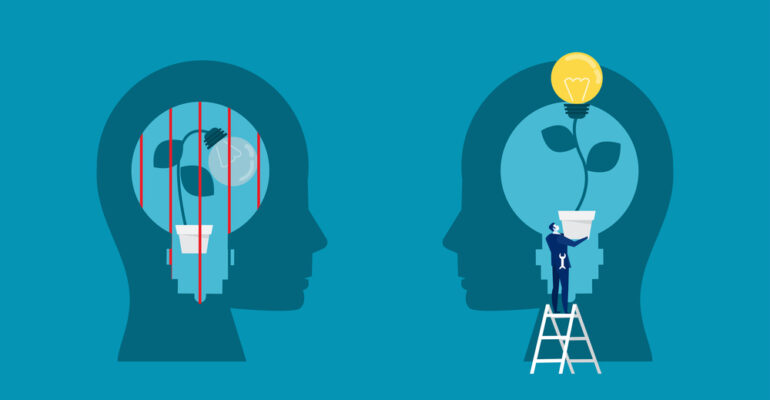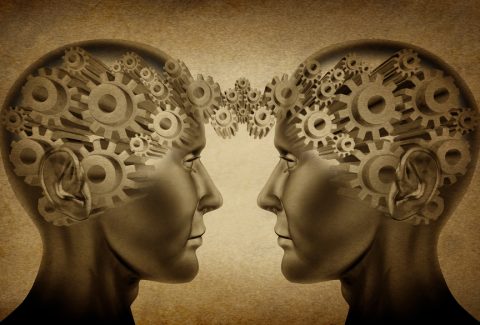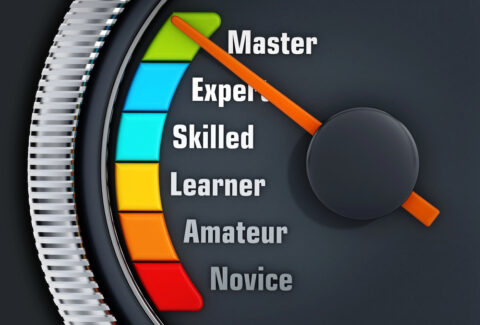The Role of Mindset in Behavior Change
Mindset plays a crucial role in the process of behavior change, influencing how individuals approach challenges, perceive their abilities, and ultimately engage in new behaviors.[1] Understanding the significance of mindset can empower individuals and practitioners alike to facilitate lasting change and improve outcomes in various contexts, including health, education, and personal development. This article explores the concept of mindset, its types, and how it impacts behavior change.
Understanding Mindset
Mindset refers to the underlying beliefs and attitudes that shape how individuals perceive their abilities, challenges, and potential for growth. Psychologist Carol Dweck identified two primary types of mindsets:
- Fixed Mindset: Individuals with a fixed mindset believe that their abilities and intelligence are static traits that cannot be changed.[2] They may avoid challenges, give up easily, and feel threatened by the success of others. This mindset can hinder behavior change as it fosters a fear of failure and a reluctance to step outside of one’s comfort zone.
- Growth Mindset: In contrast, individuals with a growth mindset believe that their abilities can be developed through effort, perseverance, and learning. They embrace challenges, view failures as opportunities for growth, and are inspired by the success of others. This mindset promotes resilience and adaptability, making it a powerful catalyst for behavior change.[3]
The Impact of Mindset on Behavior Change
- Perception of Challenges: A growth mindset encourages individuals to view challenges as opportunities rather than obstacles.[4] This perspective can motivate them to engage in behaviors that promote change, such as adopting healthier habits, pursuing educational goals, or developing new skills. In contrast, a fixed mindset may lead to avoidance and a lack of action.
- Resilience and Persistence: Mindset significantly influences an individual’s resilience and persistence in the face of setbacks.[5] Those with a growth mindset are more likely to persevere through difficulties, maintaining their commitment to behavior change. Research has shown that individuals with a growth mindset exhibit greater resilience, allowing them to bounce back from failures and continue working toward their goals.
- Self-Efficacy: Mindset affects self-efficacy, or the belief in one’s ability to succeed in specific tasks. A growth mindset enhances self-efficacy[6] by fostering a belief that effort and learning can lead to improvement. When individuals believe they can succeed, they are more likely to take action, try new behaviors, and remain committed to change.
- Response to Feedback: Individuals with a growth mindset are more receptive to feedback and constructive criticism. They view feedback as a valuable source of information for improvement rather than a personal attack.[7] This openness can facilitate behavior change by encouraging individuals to learn from their experiences and make necessary adjustments.
- Influence on Goal Setting: Mindset shapes how individuals set and pursue goals. Those with a growth mindset tend to set challenging yet achievable goals, recognizing that effort and persistence are key to success.[8] In contrast, individuals with a fixed mindset may set lower goals to avoid the risk of failure. This difference in goal orientation can significantly impact the likelihood of achieving behavior change.
Strategies to Foster a Growth Mindset
To leverage the power of mindset in behavior change, individuals and practitioners can adopt several strategies:
- Promote Self-Reflection: Encourage individuals to reflect on their beliefs about their abilities and potential for growth. Self-reflection can help identify fixed mindset tendencies and promote a more adaptive perspective.[9]
- Celebrate Effort and Progress: Shift the focus from outcomes to the effort put into achieving goals. Recognizing and celebrating incremental progress fosters a growth mindset and reinforces the idea that improvement is a continuous process.
- Encourage Learning from Failure: Normalize failure as an essential part of the learning process. Encourage individuals to view setbacks as opportunities for growth and to analyze what can be learned from each experience.[i]
- Provide Constructive Feedback: Offer feedback that emphasizes effort, strategies, and areas for improvement rather than personal attributes. Constructive feedback can help individuals develop a growth mindset and foster a willingness to learn.
- Model a Growth Mindset: Practitioners and leaders can model a growth mindset by demonstrating resilience, embracing challenges, and sharing their learning experiences. Modeling behaviors can inspire others to adopt a similar mindset.
Conclusion
Mindset plays a critical role in the success of behavior change efforts. A growth mindset fosters resilience, adaptability, and a willingness to engage in new behaviors, while a fixed mindset can create barriers to change. By understanding the impact of mindset and implementing strategies to promote a growth-oriented perspective, individuals and practitioners can facilitate lasting behavior change and empower themselves and others to reach their full potential. Whether in health, education, or personal development, embracing a growth mindset can transform the way individuals approach challenges and achieve their goals.
[1] Light, Timothy. “Our mindset, our behavior and our future.” Geography and Sustainability 1.2 (2020): 127-131.
[2] King, Ronnel B. “A fixed mindset leads to negative affect.” Zeitschrift für Psychologie (2016).
[3] Ng, Betsy. “The neuroscience of growth mindset and intrinsic motivation.” Brain sciences 8.2 (2018): 20.
[4] Nottingham, James, and Bosse Larsson. Challenging mindset: why a growth mindset makes a difference in learning–and what to do when it doesn’t. Corwin Press, 2018.
[5] Calo, Marlena, et al. “Grit, resilience and mindset in health students.” The Clinical Teacher 16.4 (2019): 317-322.
[6] Rhew, Emily, et al. “The effects of a growth mindset on self-efficacy and motivation.” Cogent Education 5.1 (2018): 14923
[7] Cutumisu, Maria. “The association between feedback-seeking and performance is moderated by growth mindset in a digital assessment game.” Computers in Human Behavior 93 (2019): 267-278.
[8] Woods, David M. “Using Goal Setting Assignments to Promote a Growth Mindset in IT Students.” Information Systems Education Journal 18.4 (2020): 4-11.
[9] Kwan, Letty Y-Y., Yu Sheng Hung, and Lam Lam. “How Can We Reap Learning Benefits for Individuals With Growth and Fixed Mindsets?: Understanding Self-Reflection and Self-Compassion as the Psychological Pathways to Maximize Positive Learning Outcomes.” Frontiers in Education. Vol. 7. Frontiers Media SA, 2022.
[i] Kopp, Colleen. “Learning to Fail: Using a Growth Mindset in the K-12 Classroom.” (2018).







